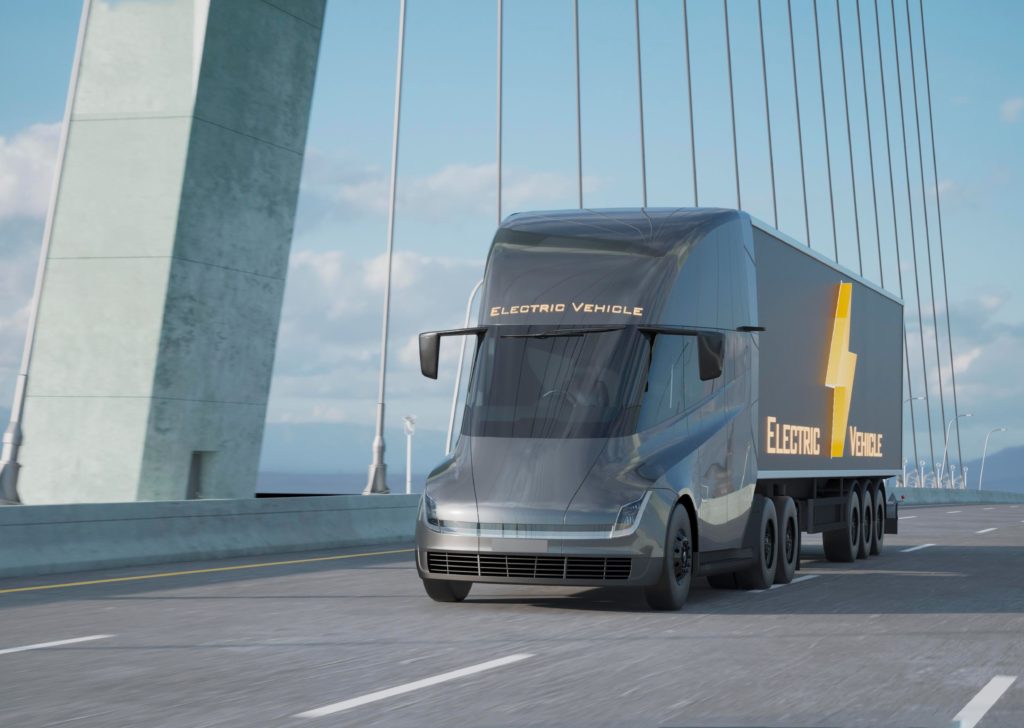Eco-Friendly Practices in Trucking

Eco-friendly practices, also known as environmentally friendly practices, refer to a set of actions aimed at reducing the negative impact of trucking activities on the environment. It involves implementing measures that prioritize sustainability, conservation, and minimizing carbon emissions. These practices can include the use of alternative fuels, adopting aerodynamic designs for trucks, optimizing routes to reduce mileage and idle time, and investing in advanced vehicle technologies for fuel efficiency.
One key aspect of eco-friendly practices is the emphasis on reducing carbon emissions and air pollution. This involves finding alternative fuel options such as biodiesel or electric trucks that emit fewer harmful gases into the atmosphere.
Additionally, it includes implementing strategies to improve fuel efficiency by minimizing air drag using aerodynamic truck designs and utilizing low rolling resistance tires. By adopting these measures, eco-friendly trucking aims to curb climate change impacts while also addressing public health concerns related to air pollution.
Adopting Eco-friendly Practices

The trucking industry plays a significant role in global logistics and transportation systems. However, it is also responsible for a substantial portion of greenhouse gas emissions worldwide. Therefore, embracing eco-friendly practices within this industry becomes crucial for mitigating environmental damage caused by its operations.
By adopting eco-friendly practices in trucking, we can witness several benefits unfold. Firstly, there will be a notable reduction in carbon emissions and air pollution levels.
This reduction will contribute towards combatting climate change and improving overall air quality which positively impacts public health. Furthermore, implementing eco-friendly measures often leads to cost savings for companies involved in the transportation sector.
For instance, investments made towards fuel-efficient technologies like hybrid engines or aerodynamic designs can significantly improve fuel efficiency over time. This not only reduces operating costs but also decreases dependency on fossil fuels.
Moreover, embracing eco-friendly practices can enhance a company’s corporate image and customer satisfaction. As awareness of environmental issues increases, consumers are actively seeking sustainable transportation solutions.
By adopting eco-friendly practices, trucking companies can position themselves as responsible and environmentally conscious entities which not only attracts environmentally conscious customers but also helps in building a positive brand reputation. Overall, the adoption of eco-friendly practices in the trucking industry is paramount to address environmental concerns and promote sustainability.
It brings numerous advantages ranging from reducing carbon emissions and air pollution to cost savings and improved brand reputation. Next, we will delve deeper into the specific benefits that arise from these practices in order to highlight their significance further.
Reduction in Carbon Emissions and Air Pollution

Eco-friendly trucking practices provide numerous benefits, starting with a significant reduction in carbon emissions and air pollution. The transportation sector is a major contributor to greenhouse gas emissions, which are known to intensify climate change. By adopting environmentally friendly practices, such as using cleaner fuels and optimizing routes for fuel efficiency, trucking companies can play a crucial role in mitigating the impact of climate change.
In addition to addressing climate change, minimizing air pollution is essential for public health. Traditional diesel engines emit pollutants like nitrogen oxide (NOx) and particulate matter (PM), which are harmful to both the environment and human health.
Recent advancements in engine technologies have allowed for the development of hybrid systems and electric trucks that produce zero tailpipe emissions. By incorporating these alternative fuel vehicles into their fleets, trucking companies contribute to cleaner air quality and healthier communities.
Use of Alternative Fuels

One of the key ways eco-friendly trucking practices are achieved is through the use of alternative fuels such as biodiesel and electric power. Biodiesel is derived from renewable sources like vegetable oils or animal fats, making it a more sustainable choice compared to traditional diesel fuel made from fossil fuels.
Trucking companies can reduce their carbon footprint by incorporating biodiesel blends into their operations. Electric trucks are another promising solution in the quest for reducing carbon emissions.
These vehicles rely on electricity as their primary source of power, resulting in zero tailpipe emissions. While widespread adoption of electric trucks is still underway due to infrastructure challenges like charging stations’ availability, technological advancements are rapidly improving battery performance and driving range – making them a viable option for many trucking companies seeking greener alternatives.
Cost Savings & Improved Fuel Efficiency

Besides environmental benefits, eco-friendly trucking practices also offer cost savings and improved fuel efficiency. By implementing aerodynamic designs and utilizing low rolling resistance tires, trucks can reduce drag and improve their fuel economy. Aerodynamic designs include features such as streamlined bodies, side skirts, and roof fairings that optimize airflow around the vehicle.
Low rolling resistance tires, on the other hand, decrease friction with the road surface, resulting in less energy required to move the truck forward. Advancements in engine technologies have also contributed to enhanced fuel efficiency in trucks.
Hybrid systems combine traditional internal combustion engines with electric power to reduce fuel consumption during idling or low-speed operations. These systems store energy generated during braking or downhill driving in batteries and use it to power auxiliary systems or assist the main engine during acceleration – resulting in significant fuel savings.
Enhanced Corporate Image & Customer Satisfaction

Adopting eco-friendly practices positively impacts a company’s corporate image, contributing to enhanced customer satisfaction and loyalty. In today’s environmentally conscious world, customers are increasingly seeking out businesses that prioritize sustainability.
Transportation plays a significant role in supply chains across industries, making sustainable transportation solutions an essential consideration for many companies. By investing in green initiatives like alternative fuels and advanced technologies, trucking companies project a commitment towards reducing environmental impact while delivering products or services to customers.
This alignment of values between customers and businesses fosters trust and strengthens relationships – leading to increased customer satisfaction and loyalty. Beyond customer perception, eco-friendly practices also have a positive impact on brand reputation.
Companies seen as responsible stewards of the environment are more likely to attract potential partners, investors, and employees who share similar values. This reputation not only positions trucking companies as industry leaders but also opens doors for collaboration with other like-minded organizations seeking sustainable transportation solutions.
Implementing Eco-Friendly Practices

Route Optimization and Load Consolidation
When it comes to reducing fuel consumption and minimizing carbon emissions, route optimization and load consolidation are two key strategies that can make a substantial difference in the trucking industry. Utilizing advanced GPS technology, trucking companies can now plan their routes more effectively, considering factors such as traffic patterns, road conditions, and delivery schedules.
By minimizing mileage and idle time, trucks can operate more efficiently while simultaneously reducing their environmental impact. Collaboration with other carriers for shared loads is another approach that helps optimize routes and reduce empty miles.
By coordinating with other transportation companies or leveraging freight-matching platforms, carriers can fill their trucks to capacity and avoid unnecessary trips with partially loaded vehicles. This collaborative effort not only reduces fuel consumption but also promotes sustainability by decreasing the overall number of trucks on the road.
Fuel-Efficient Driving Techniques
Educating truck drivers about fuel-efficient driving techniques is crucial to maximize efficiency while reducing emissions. Training programs should emphasize the importance of maintaining proper tire pressure since underinflated tires increase rolling resistance, leading to decreased fuel economy.
By regularly checking tire pressure levels and ensuring they meet manufacturer recommendations, drivers can optimize fuel efficiency. Another practice drivers should adopt is utilizing cruise control during highway driving.
This maintains a consistent speed and prevents unnecessary acceleration or deceleration—both of which contribute to higher fuel consumption. Additionally, aggressive driving behaviors such as sudden acceleration or hard braking should be avoided as they waste energy and increase wear-and-tear on vehicle components.
Investment in Advanced Vehicle Technologies
To further enhance eco-friendliness in the trucking industry, organizations should consider investing in advanced vehicle technologies that promote sustainability. One such technology is telematics systems which allow real-time monitoring of vehicle performance, fuel consumption, and driver behavior.
This data can help fleet managers identify areas for improvement and develop targeted strategies to optimize efficiency. Installing automatic engine shutdown systems during extended idling is another effective measure.
Idling consumes fuel without any productive output, burning resources unnecessarily and generating unnecessary emissions. With automatic shutdown systems, engines can be automatically turned off after a pre-set idle duration, saving fuel and reducing environmental impact.
By implementing these strategies across the trucking industry, companies can significantly reduce their carbon footprint while simultaneously improving operational efficiency. It is essential for trucking organizations to prioritize these eco-friendly practices as they not only contribute to a healthier environment but also enhance the overall sustainability of the industry.
Government Regulations Promoting Eco-Friendly Trucking

Existing Regulations (e.g., EPA’s SmartWay Program)
In recent years, government agencies have become increasingly concerned about the environmental impact of the trucking industry. As a result, various regulations have been put in place to promote eco-friendly practices. One notable program is the Environmental Protection Agency’s (EPA) SmartWay program. This initiative focuses on reducing greenhouse gas emissions and improving fuel efficiency in freight transportation.
The program provides tools and resources to help trucking companies adopt cleaner technologies and operational practices. Under the SmartWay program, carriers are encouraged to invest in technologies that reduce carbon emissions and improve fuel economy. This includes utilizing more aerodynamic trailers, implementing low rolling resistance tires, and adopting advanced engine technologies like hybrid systems. Furthermore, carriers are encouraged to optimize their operations through load consolidation and route optimization to minimize unnecessary miles traveled.
Impact on Fleet Operations and Compliance Requirements
The impact of these regulations on fleet operations cannot be understated. Trucking companies must adapt their operations to comply with the requirements set forth by regulatory authorities. This often involves investing in new equipment or upgrading existing vehicles to meet emission standards. Additionally, compliance with eco-friendly regulations has forced companies to rethink their operational strategies and seek innovative solutions for sustainable transportation practices. For example, many fleets have started using alternative fuels such as biodiesel or even transitioning towards electric trucks where feasible. Although complying with these regulations may initially pose challenges for some fleets due to costs or infrastructure limitations, it ultimately leads to long-term benefits for both the environment and businesses themselves.
Future Trends in Regulatory Measures Further Promoting Sustainability
Looking ahead, regulatory measures aimed at promoting sustainability in the trucking industry will continue to evolve as technology advances and environmental concerns intensify. One future trend that is gaining traction is the implementation of stricter emission standards for heavy-duty vehicles. These regulations will likely push truck manufacturers to develop more fuel-efficient and low-emission trucks.
Another emerging trend is the inclusion of sustainability criteria in government contracts and procurement processes. This means that companies bidding for government contracts will need to demonstrate a commitment to eco-friendly practices, further incentivizing the adoption of sustainable transportation solutions.
Moreover, there may be increased emphasis on collaboration between government agencies, private organizations, and trucking companies to develop innovative strategies for reducing carbon emissions. This could involve financial incentives, partnerships with research institutions, or joint initiatives to promote knowledge sharing and best practices.
Government regulations play a crucial role in promoting eco-friendly practices in the trucking industry. Programs like EPA’s SmartWay provide a roadmap for carriers to adopt cleaner technologies and operational practices.
Compliance with these regulations impacts fleet operations by requiring investments in new equipment and encouraging innovative solutions for sustainable transportation. Looking ahead, future regulatory measures are likely to focus on stricter emission standards and increased collaboration among stakeholders to tackle environmental concerns in the trucking sector.
Innovations Driving Eco-Friendly Trucking

1. Advancements in Electric Trucks
With the increasing focus on reducing emissions, electric trucks have emerged as a game-changer in the trucking industry. These vehicles are powered by electricity instead of traditional fossil fuels, resulting in zero tailpipe emissions.
Companies like Tesla and Nikola Motors have taken the lead in developing electric truck models with impressive range capabilities and quick charging times. The use of electric trucks not only reduces carbon emissions but also provides a quieter and more sustainable solution for freight transportation.
2. Development of Sustainable Fuels
In addition to electric trucks, there has been significant progress in the development of sustainable fuels for trucking purposes. Biodiesel, derived from renewable sources such as vegetable oils or animal fats, offers a viable alternative to traditional diesel fuel. It can be blended with regular diesel or used as a standalone fuel option, significantly reducing carbon footprint without requiring extensive modifications to existing trucks or infrastructure.
3. Integration of Autonomous Technologies
The integration of autonomous technologies into trucking operations is another innovation that holds great potential for eco-friendly practices. Self-driving trucks can optimize routes, reduce idling time, and improve fuel efficiency through precise acceleration and braking control. Additionally, platooning technology allows multiple trucks to travel closely together, benefiting from reduced wind resistance and enhanced fuel economy.
4. Implementation of Smart Fleet Management Systems
Smart fleet management systems equipped with advanced telematics technology are revolutionizing the way trucking companies operate their fleets. These systems provide real-time data on fuel consumption, engine performance, and driver behavior which allows fleet managers to identify areas for improvement and optimize operations accordingly. With features like route optimization algorithms and predictive maintenance alerts, these systems help reduce fuel consumption while maximizing efficiency.
Conclusion
The trucking industry is experiencing a remarkable transformation towards eco-friendly practices. Innovations such as electric trucks, sustainable fuels, autonomous technologies, and smart fleet management systems are driving this positive change. These advancements not only contribute to reducing carbon emissions and improving fuel efficiency but also offer cost savings and enhanced corporate reputations for trucking companies.
With increasing awareness of the importance of sustainability in transportation, it’s encouraging to see these innovative solutions paving the way for a greener future in the trucking industry. By adopting these eco-friendly practices, we can make significant strides towards mitigating climate change and creating a more sustainable world.










